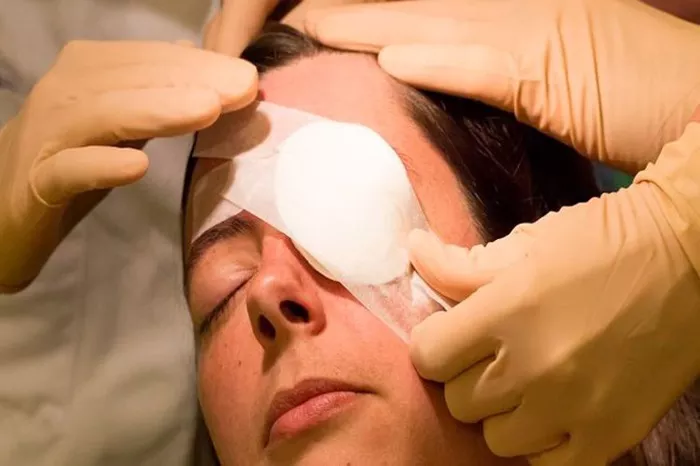Cataract surgery is one of the most common surgical procedures performed worldwide, aimed at restoring vision by removing the cloudy lens of the eye and replacing it with an artificial lens. While the procedure is generally regarded as safe and effective, many patients express concerns about pain associated with the surgery. Understanding the pain experience during and after cataract surgery is crucial for patients considering this procedure. This article aims to provide a comprehensive overview of whether cataract surgery hurts, exploring various aspects such as patient experiences, types of anesthesia used, potential discomfort during and after surgery, and ways to manage any pain.
Understanding Cataracts
What Are Cataracts?
Cataracts are a condition characterized by the clouding of the natural lens in the eye, leading to decreased vision. They often develop slowly and can affect one or both eyes. Common symptoms include blurred vision, difficulty seeing at night, sensitivity to light, and seeing halos around lights. The development of cataracts is usually associated with aging, but other factors such as diabetes, prolonged use of corticosteroids, and excessive exposure to sunlight can also contribute.
Why Surgery Is Necessary
When cataracts progress to a point where they significantly impair vision and daily activities, surgery becomes necessary. The procedure not only improves vision but also enhances quality of life by allowing individuals to engage in activities they may have avoided due to poor eyesight.
The Surgical Procedure
Overview of Cataract Surgery
Cataract surgery typically involves a procedure called phacoemulsification. During this process, the surgeon makes a small incision in the eye, uses ultrasound waves to break up the cloudy lens into tiny pieces, and then removes these pieces through suction. An artificial intraocular lens (IOL) is then implanted in place of the natural lens.
Types of Anesthesia Used
To minimize discomfort during cataract surgery, local anesthesia is commonly employed. This may include:
Topical Anesthesia: Numbing eye drops are applied directly to the eye.
Intracameral Anesthesia: An anesthetic solution is injected into the eye’s anterior chamber.
Sedation: Some patients may receive mild sedation to help them relax during the procedure.
The choice of anesthesia can influence the pain perception during surgery.
Does It Hurt to Have Cataract Surgery?
Patient Experiences with Pain
Research indicates that most patients report minimal pain during cataract surgery. A study published in the Journal of Ophthalmology found that approximately 35% of patients experienced some degree of intraoperative pain; however, this pain was generally mild. Many individuals describe their experience as more uncomfortable than painful, often likening it to pressure rather than sharp pain.
Factors Influencing Pain Perception
Several factors can influence how much pain a patient experiences during cataract surgery:
Type of Cataract: Patients with denser cataracts may report higher levels of discomfort compared to those with less dense ones.
Anxiety Levels: Patients who are anxious about the procedure may perceive more pain than those who feel calm and prepared.
Individual Pain Threshold: Each person’s tolerance for pain varies, which can affect their experience during surgery.
Pain During Surgery
Common Sensations Reported
During cataract surgery, patients may experience various sensations:
Pressure: Many report feeling pressure on the eye as the surgeon works.
Mild Discomfort: Some patients describe a mild stinging or burning sensation from the anesthetic drops or during manipulation of the eye.
Sound: The sound of ultrasound equipment can be unsettling but does not indicate any pain.
Managing Pain During Surgery
To enhance comfort during cataract surgery:
Communicate with Your Surgeon: Discuss any anxiety or concerns about pain beforehand.
Follow Pre-operative Instructions: Using prescribed eye drops prior to surgery can help reduce discomfort.
Relaxation Techniques: Deep breathing or visualization techniques can help ease anxiety.
Post-operative Discomfort
What to Expect After Surgery
Post-operative discomfort is relatively common but usually mild. Patients may experience:
Dryness or Gritty Sensation: After surgery, many report feeling like there is something in their eye due to temporary disruption in tear production.
Itching or Burning: These sensations are often mild and can be managed with artificial tears or prescribed medications.
Increased Sensitivity to Light: Many patients find bright lights uncomfortable for several weeks post-surgery.
Managing Post-operative Discomfort
To alleviate discomfort after cataract surgery:
Use Artificial Tears: These can help relieve dryness and irritation.
Follow Medication Instructions: Adhere strictly to any prescribed anti-inflammatory or antibiotic eye drops.
Avoid Rubbing Your Eyes: This can lead to complications or increased discomfort.
Long-term Considerations
Potential Complications
While serious complications from cataract surgery are rare, some patients may experience prolonged discomfort due to:
Dry Eye Syndrome: This condition may be exacerbated post-surgery due to disrupted corneal nerves.
Inflammation: Inflammation in response to surgery can cause temporary discomfort but usually resolves within a few days.
Patients should remain vigilant for signs of complications such as severe pain, vision changes, or increased redness in the eye and contact their ophthalmologist if these occur.
Conclusion
Cataract surgery is generally considered a safe and effective procedure with minimal associated pain for most patients. While some individuals may experience mild discomfort during and after the operation, effective anesthesia techniques and post-operative care strategies can significantly alleviate these sensations. Understanding what to expect before undergoing cataract surgery can help patients feel more prepared and less anxious about their experience. Ultimately, successful cataract surgery leads not only to improved vision but also enhances overall quality of life for countless individuals worldwide.
Related topic:
How Long Does Eye Swelling Last After Cataract Surgery?
How Is Droopy Eyelid Surgery Done?
What To Do With Saggy Eyelids?


